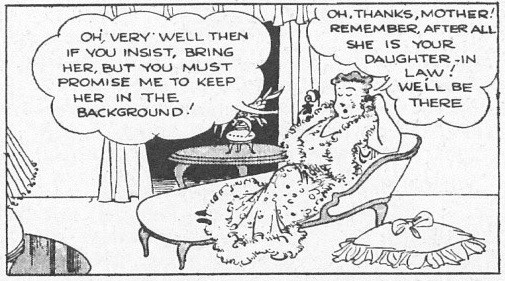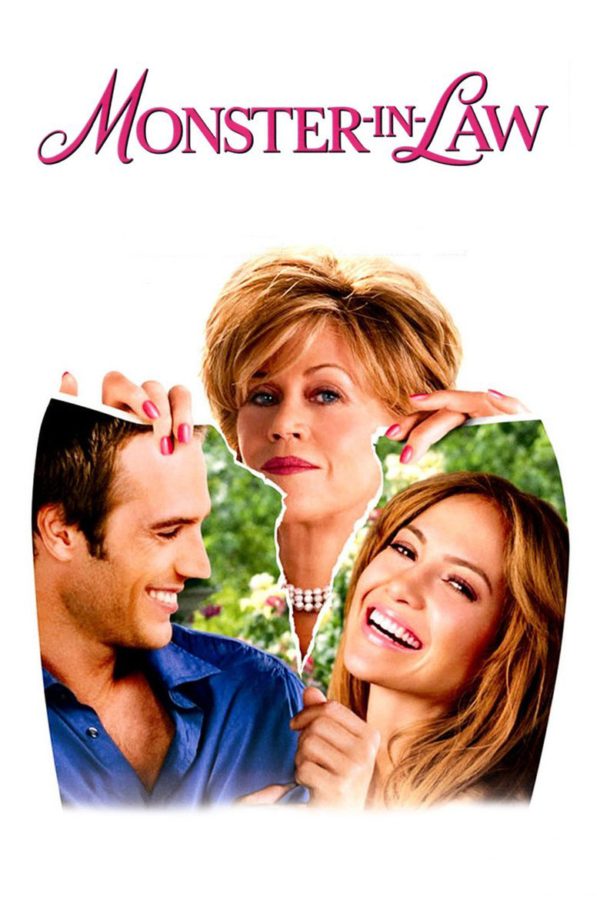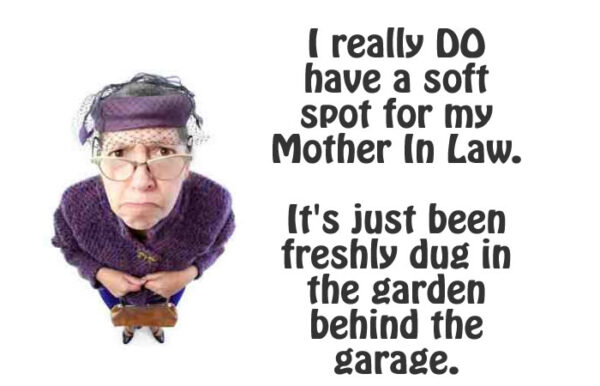When my oldest son became engaged, a luncheon was arranged to introduce me to his finance’s family. When I glanced around the table, I caught my future daughter-in-law’s sisters scrutinizing me. I experienced the uncomfortable sensation that I was being sized-up to determine the extent to which I’d be a problematic mother-in-law.
I was about to inherit the Mother-in-Law curse, stepping into a role that society frequently makes pejorative. Back-slapping guys exchange unflattering mother-in-law jokes, while women complain to their friends about their difficult mothers-in-law, using adjectives like “meddlesome, controlling, and demanding.”
Eighteen years later, in my role as a mother-in-law, I’ve developed a close relationship with my daughter-in-law. I’m proud of her mothering, her job with preschool kids and her activism. Still, I seem unable to shake the Mother-in-Law curse, ready to inhabit me and cause havoc, if I don’t tread carefully.
Has society created a self-fulfilling prophecy where the mother-in-law is set up to be difficult?
As I searched the web for suggestions on how mothers-in-law and daughters-in-law can get along, virtually all the scenarios were one-sided, offering advice to daughters-in-law for managing “toxic mothers-in-law.” Where’s the mutual responsibility? Why is empathy lacking for mothers-in-laws’?
Growing up I was indoctrinated into the Mother-in-Law curse.
As the only girl in the family, I became my mother’s confidant, listening to her endless complaints about my paternal grandmother. I’d hear accounts like, “Your father’s off again to see your grandmother who called saying she’s not well. There’s nothing wrong with her. She’s just looking for attention.”
I came to understand that my grandmother clung to my father, her only child, because my grandfather, a gambler and womanizer, was inattentive towards his wife. My mother acknowledged that my grandfather was a bad character, but that didn’t extend to compassion for her mother-in-law.

A family photo with my mother standing behind my father flanked by his parents. In life, as in the photo my mother was eclipsed by her mother-in-law
When I got engaged and my mother met my future mother-in-law for the first time, she offered this verdict, “She’s tough. You’ll have to watch yourself.” There was some truth to this.
My Russian mother-in-law had immigrated to the US as a child with her mother and three other small children, one an infant, who died at Ellis Island. My mother-in-law had to be tough to survive. She became domineering with her family, frequently intimidating them. I wish now I had sat longer with her story to overcome my knee-jerk reactivity towards her.
I have friends who enjoy good relationships with their daughters-in-law, but like me, they confess to monitoring their behavior, carefully choosing their words.

My son, David,, and daughter-in-law, Melissa, standing behind myself and their children, Max and Jane, May 2017
A key to eradicating the negative mother-in-law image is to try and understand why it persists. I believe it’s a function of the patriarchy, which tends to make women scapegoats for family conflicts. At the same time, it’s ageist in its lack of respect for an older woman’s wisdom.
I’m baffled that the women’s movement hasn’t taken on the unfair treatment of mothers-in-law. Let’s reject this stereotype. Let’s refuse to be cowed as mothers-in-law and stop behaving defensively. Let’s refuse the Mother-in-Law curse.
Instead let’s adopt a positive frame of mind, not taking all the blame for friction when it surfaces, but staying focused on creating a mutually loving relationship with our children’s partners. I think it’s a shift whose time has come. Women in families need to support and love one another, now more than ever.


